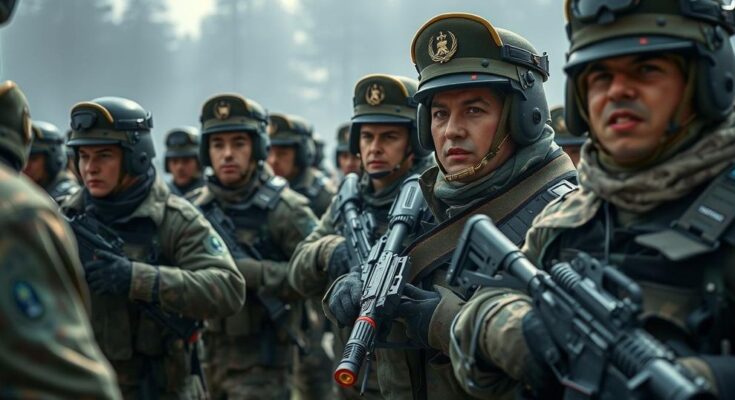North Korean troops have reportedly engaged in combat in Ukraine, contrary to initial expectations of non-combat roles. Current estimates of deployed troops range as high as 100,000, drawn from elite forces trained for special operations. This partnership reflects mutual needs: North Korea requires financial inflow and technology while Russia addresses troop shortages amidst ongoing territorial conflict. Increased North Korean military capabilities also raise concerns for South Korea, especially considering heightened tensions on the Korean peninsula.
Recent reports indicate that North Korean troops have begun to engage in combat in Ukraine, despite initial expectations that they would fulfill only non-combat roles due to their inexperience. The potential deployment size has also come under scrutiny, with estimates suggesting numbers far greater than the Pentagon’s initial figure of 11,000. Intelligence assessments suggest that some of the troops being sent are elite members of the 11th Corps, trained for special operations and capable of enduring harsh conditions. As Russia faces troop shortages, it appears to be enhancing the readiness of these North Korean forces through additional training. While these troops may lack combat experience, they possess a level of training and motivation that could prove beneficial as the conflict continues. The involvement of North Korean troops in Ukraine raises questions about the motivations of both parties involved. North Korea appears to be seeking financial gain from Russia, as well as access to military technology. Meanwhile, Russia’s need for reinforcements stems from heavy personnel losses in the ongoing conflict, prompting it to explore foreign enlistments to sustain its war efforts. These developments occur amidst heightened tensions on the Korean peninsula, causing concern in South Korea, especially regarding the potential for North Korea to gain combat experience and military capabilities from such involvement. Overall, the situation remains fluid and uncertain, influenced by the complexities of international relations and the evolving dynamics of the war. The implications of this alliance, both for the immediate conflict in Ukraine and regional security in Asia, warrant close observation in the months to come.
The involvement of North Korean troops in the Ukraine conflict has emerged as a significant development following the onset of war in 2022. Initially, reports suggested that these troops would not participate in direct combat due to their lack of experience; however, subsequent intelligence indicated that they have been engaged in fighting alongside Russian forces. The shifting dynamics around troop numbers, with estimates suggesting up to 100,000 soldiers, further complicate the understanding of North Korea’s military contribution and its implications in the ongoing conflict. Additionally, the geopolitical context involving Moscow and Pyongyang implicates broader strategic needs, with North Korea leveraging troop deployments for financial and technological gains while Russia seeks to bolster its war capabilities amidst substantial casualties.
In conclusion, the dispatch of North Korean troops to Ukraine reveals a complex interplay of military strategy, economic necessity, and geopolitical maneuvering. While these forces are being trained for potential combat roles, many aspects such as experience and operational effectiveness remain uncertain. The motivations behind this collaboration suggest mutual benefit, with North Korea pursuing financial gains and technological advances, while Russia addresses its pressing troop shortages. As this situation unfolds, its ramifications will likely affect both the Ukraine conflict and broader regional security dynamics, particularly in relation to South Korea’s concerns regarding a more capable North Korean military presence.
Original Source: www.bbc.com




